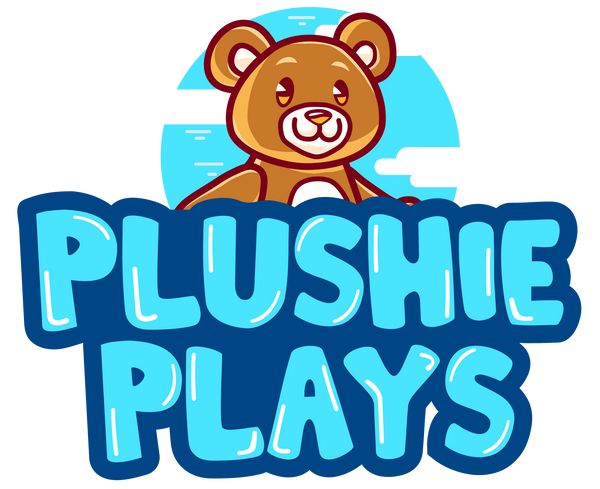
Why Plushies Are Perfect Companions for Growing Kids
Share
Plushies provide a constant source of comfort to children regardless of their age because the world is a fast-evolving environment. Not only are these cuddly companions cute, but they make an important contribution to emotional growth, social competence, imagination, and personal endurance. As a parent, caregiver, or educator, you would want to have a classical instrument to facilitate the process, and in this regard, plushies should be given a prime position in the life of each child. This is the reason why they are perfect as best friends of growing children.
Comfort in a Complex World
Growing up is about being immersed in a very big emotional world, feelings of excitement, curiosity, fear, frustration, and pride. Plushies are literally a comforting presence in such situations. A child who is hugging a plush toy will use their senses, the feel of the soft cloth, the coziness of their old friend, the soft squish of its stuffing, and the adorable appearance that offers the kids a sense of safety. These elements in a plush toy may be immensely relaxing and allow one to hold emotions within check and to relax the nervous system following a stressor of any kind, like watching a frightening movie or having a bad day in school.
Emotional anchor plushies, like a Grookey plushie toy, will prove to be particularly useful in the case of the younger children who are still developing vocabulary and can't form words to enable them to express their emotions. A familiar stuffed animal can be a safe place to feel safe, calm, and expressive about how they are feeling while slowly developing emotional literacy that would help them throughout their life.
Safety of Imagination and Play
Playtime has a major role in the growth of kids. Plushies open up limitless possibilities for creative play, including simulated situations that foster play-fantasy. A stuffed bear may be an encouraging instructor in a make-believe classroom, a dinosaur may keep watch over a mystical forest, and a dragon made of a blanket fort may go on a great adventure. Roleplay enables children to explore various roles, engage in problem-solving, and practice socialization in a low-stakes setting.
Creative play enhances creativity, cognitive flexibility, and language development. When children tell stories, label feelings, and give instructions to the stuffed toys, they are developing cognitive muscles that will enable them to read, solve math problems, and solve problems in the future.
Social Skills and Empathy
Plushies are not just toys but are social companions. They encourage children to turn-taking, share, and collaborate in play either among themselves, friends, or caregivers. When a plushy is given by a child as his/her friend to practice communicating or empathizing, they are practicing social scripts, and it will help them succeed in this aspect of human interaction.
Plushies may be used as substitutes with other people, in the case of children learning to cope with their emotions. The parent could engage the favorite plush as a model of comforting a crying playmate, or the parent could explain to their child how to have a good listening session to the plush character's demands. These are mild exercises that lead to a healthy relationship with peers and prosocial behavior.
Safe, Durable, and Inclusive to All Kids
A good plushie is developed with a sense of safety: it has to be hypoallergenic, the seam should be well stitched, and suitable plushie features for its age. Durability is also important- plushies that can be washed or easily cleaned can withstand the roughness and tumble of everyday life and thus have the durability of having years as a pet.
Moreover, plushies exist in unlimited proportions of dimensions, color, textures, and character themes. Such inclusiveness guarantees that each child will be able to find a plush that will appeal to their individuality, their interests, and their culture. The toy is a more significant and empowering being when children select a plush that mirrors who they are or what they love.
Plushie Plays: Best Plush Store for Thoughtful Parents with Growing Kids
Responsible parents consider more than just cuteness in the perfect plushies that they are selecting. A large plush store like Plushie Plays is aware that the toys could help in acquiring knowledge, emotional, and even within the family. Their items range from a wide variety of plushies, both sensory and character-based, to their interests, and might include some textures. Not only is it a good present to kids, but also a companion in the development of a child, something like Chespin Plushie toy that provides support in hard times and motivation in creative games.
To find stores that are worth the money and in which parents likely will not question the safety conditions, it is recommended to find stores that offer clear and transparent safety standards, washable clothes, strong stitching, and age-related design. The right plush store ends up as a reliable company that assists the families to pick friends that portray their ethics, culture, and the individual character of their child.
Conclusion
Plushies are not simple toys; they become friends of children. It suits changing requirements, calming a nervous situation, or stimulating creativity, easing a challenging transition process, or aiding social and language growth. Plushies provide comfort, security, and sustainability in the merciless march of childhood, as the plushies recognize a child and their rhythm.
Therefore, when shopping for the next gift for a developing child, you should think over a plushie not only as a cute object, but also as one that can develop emotional intelligence, resilience, imagination, and bonding. The plush friend can be a silent superhero, someone who listens without criticism, says congratulations to even minor achievements, and provides comfort on the ups and downs of childhood.
